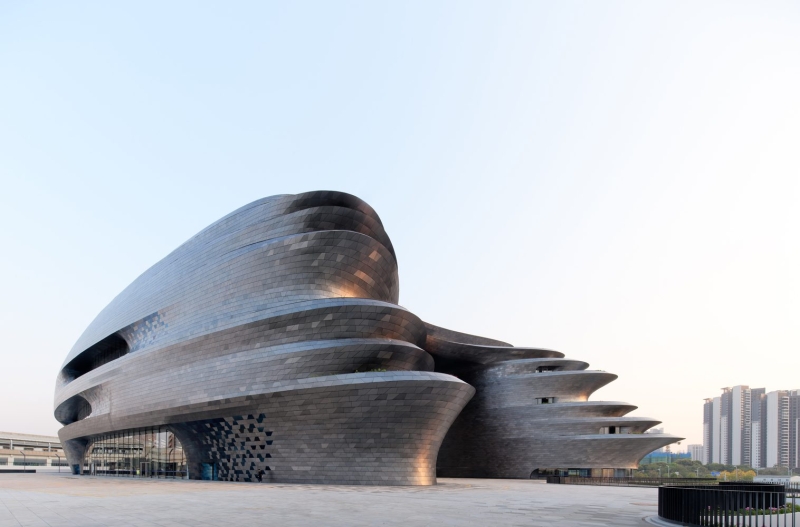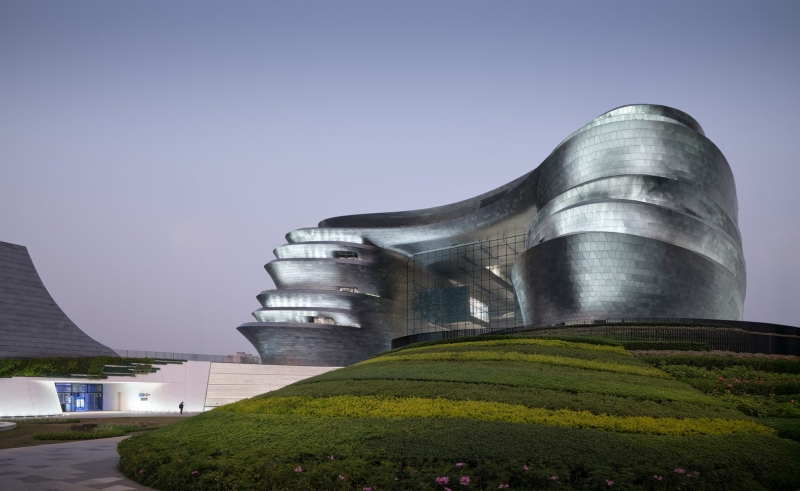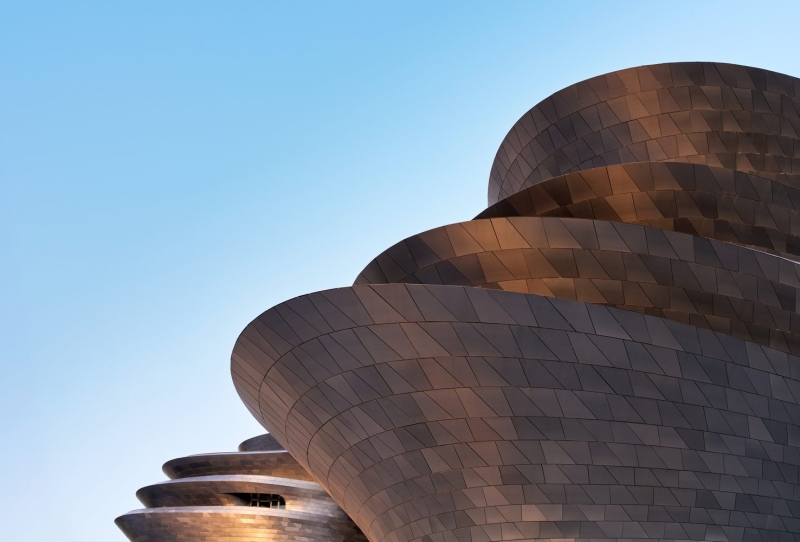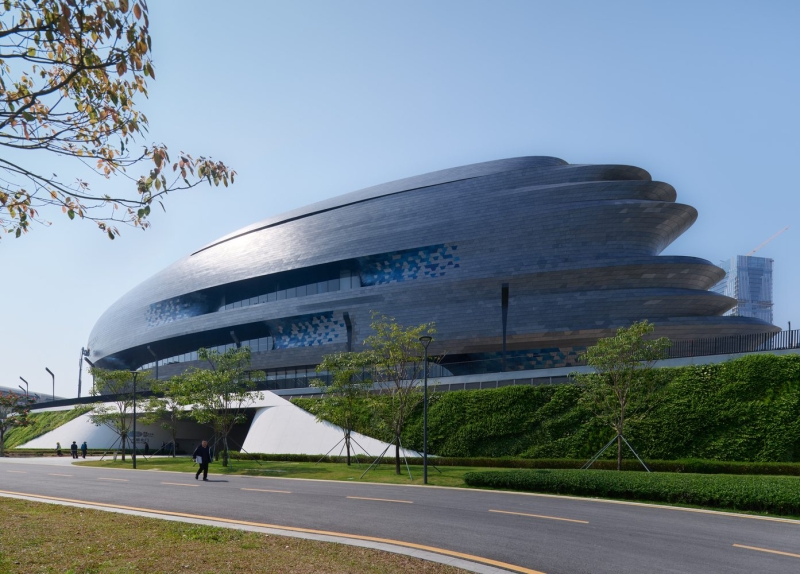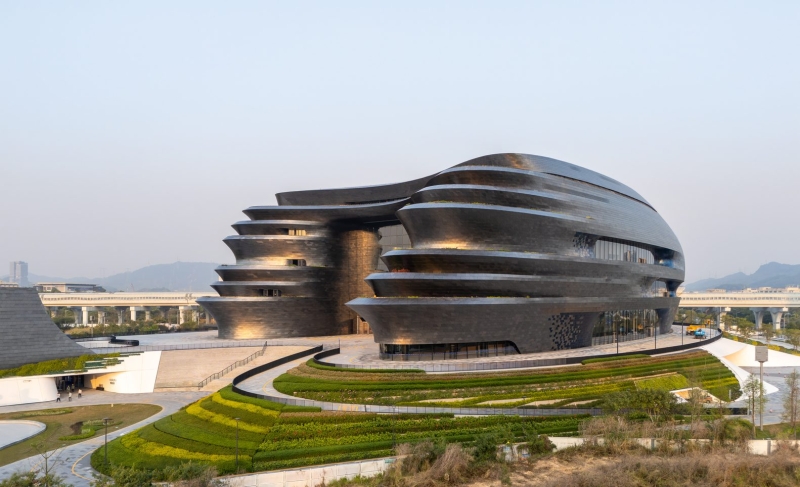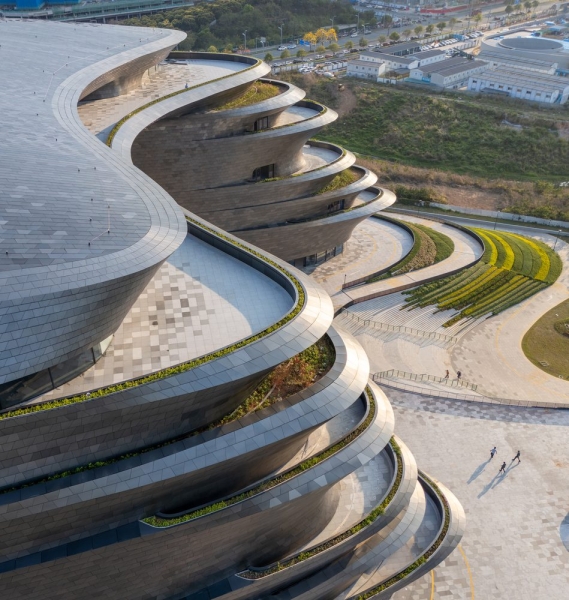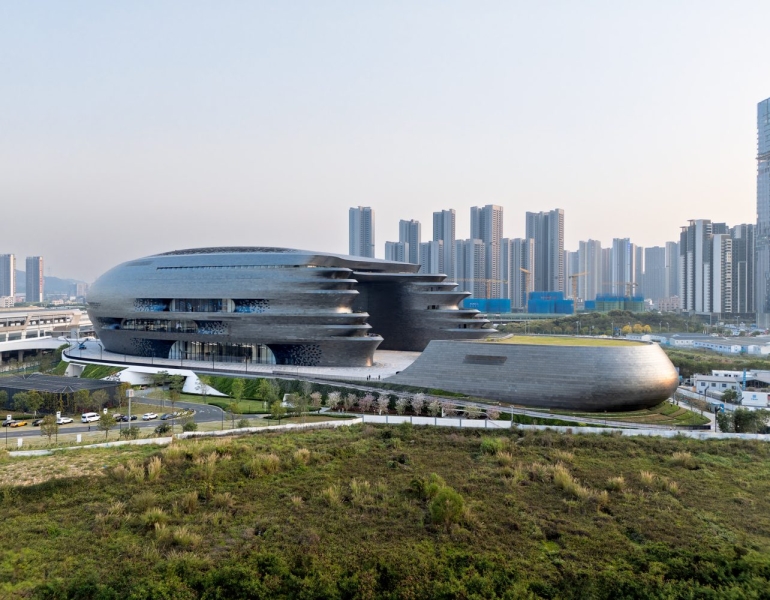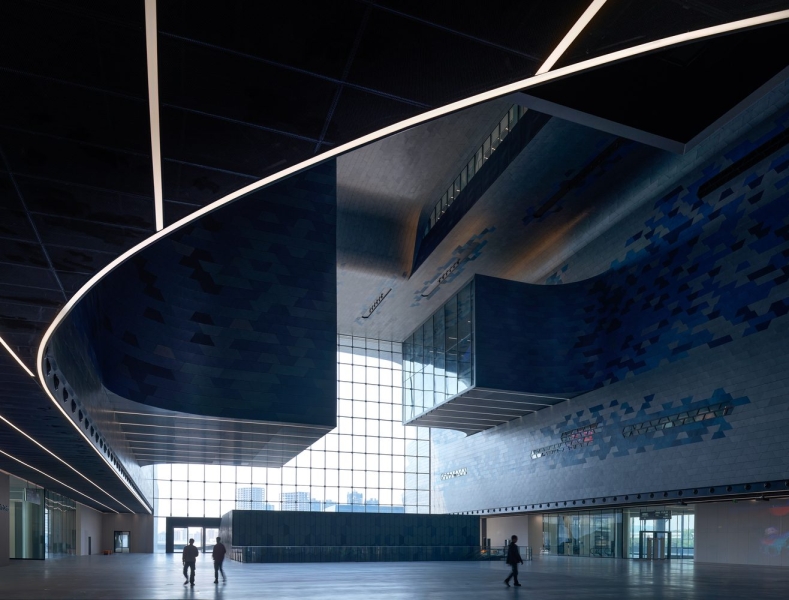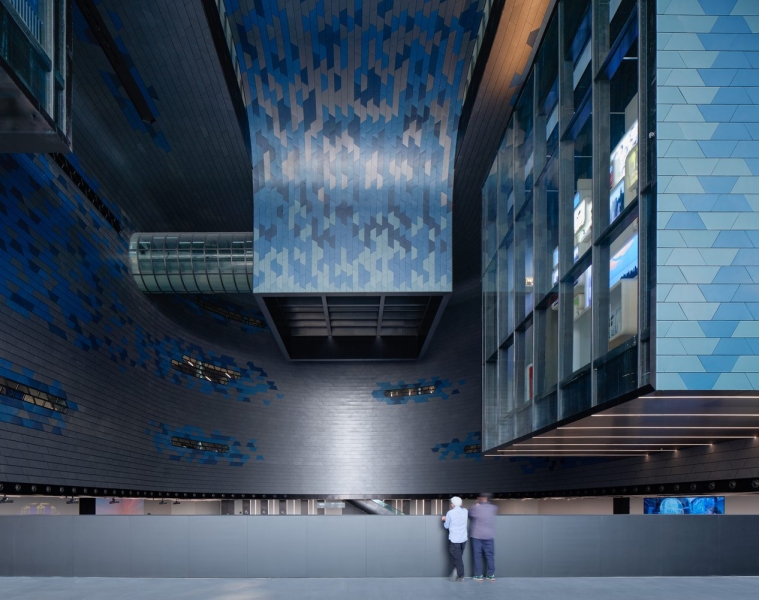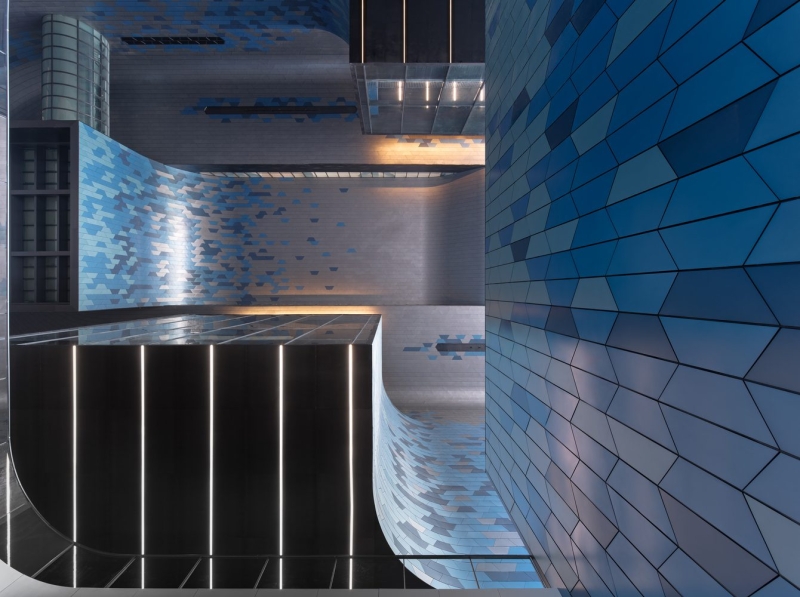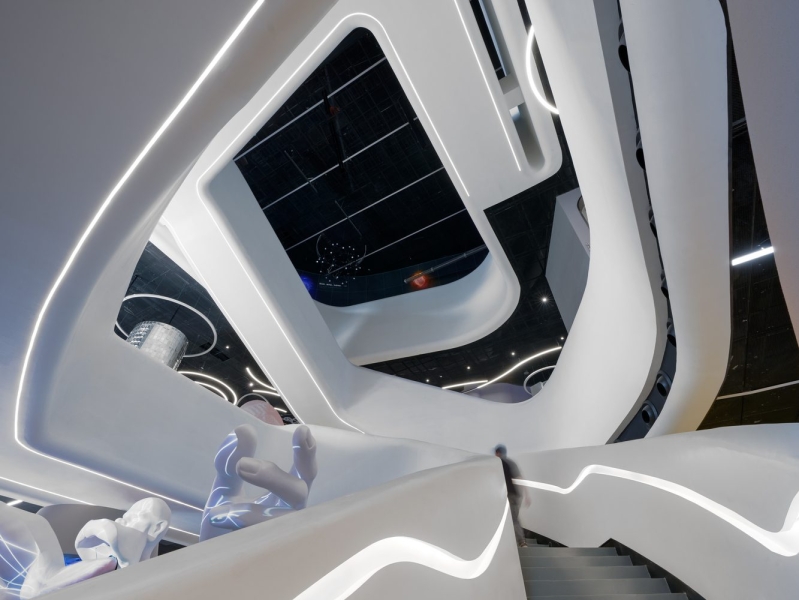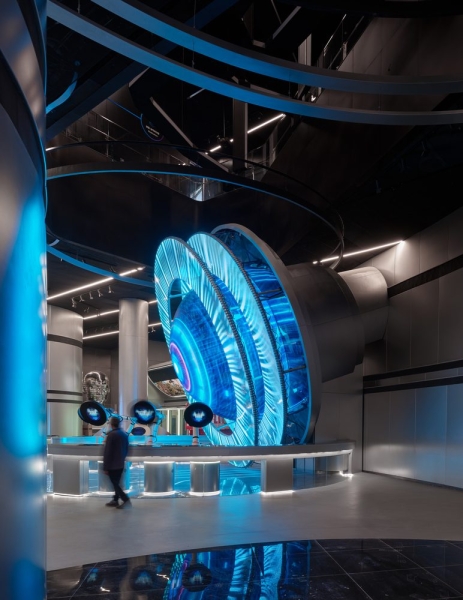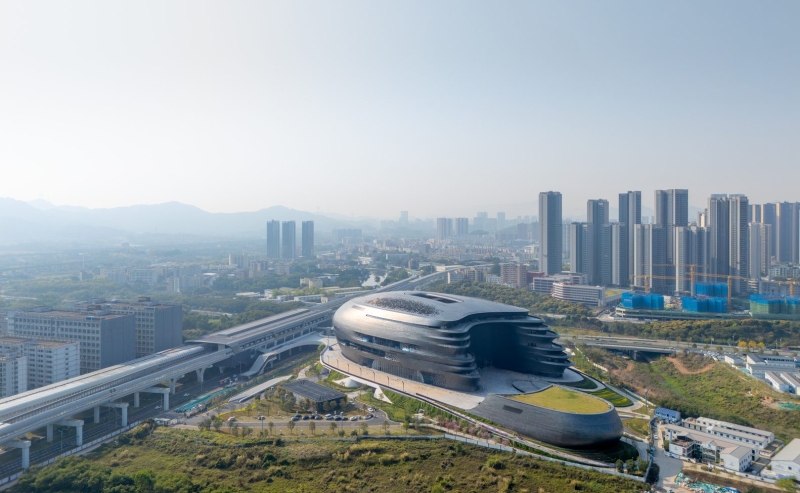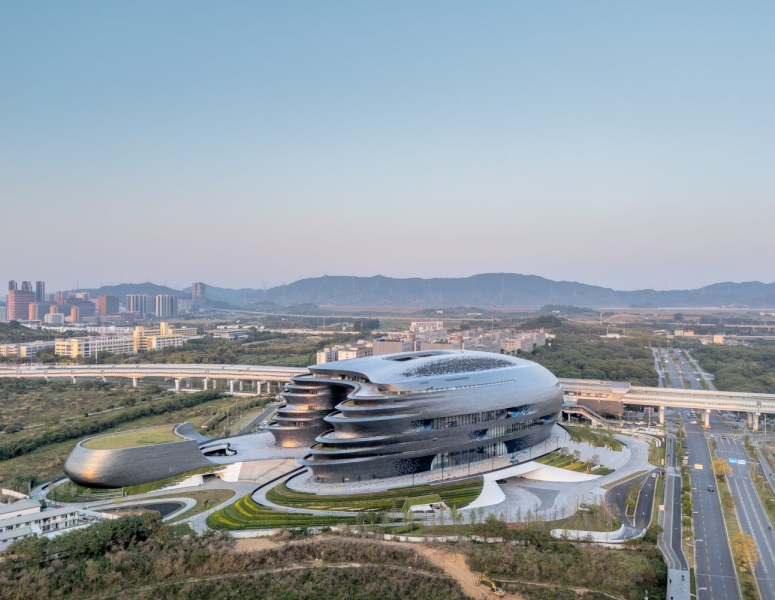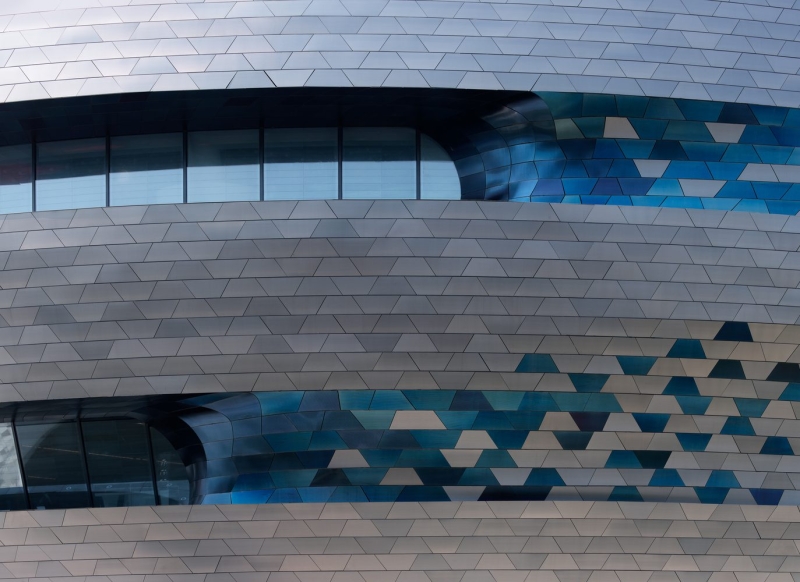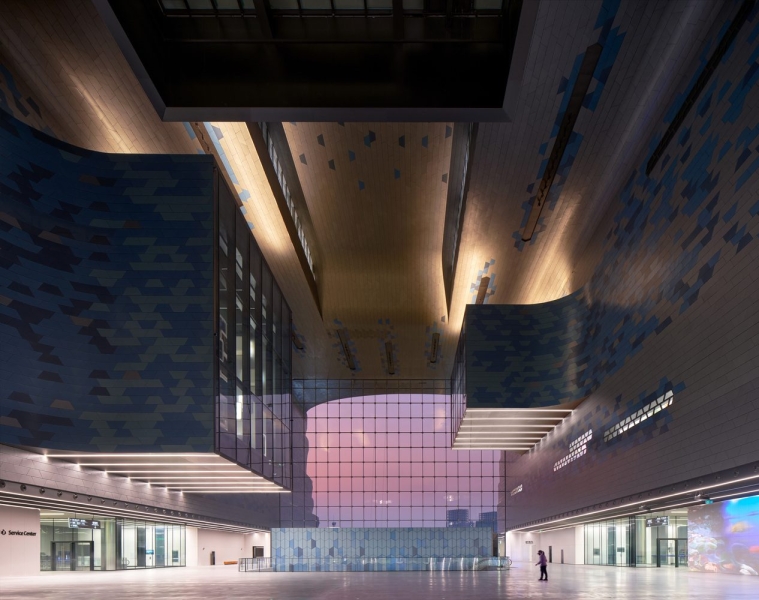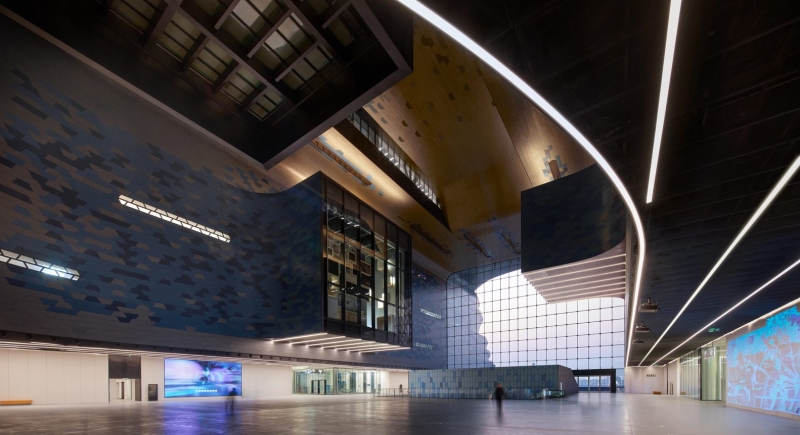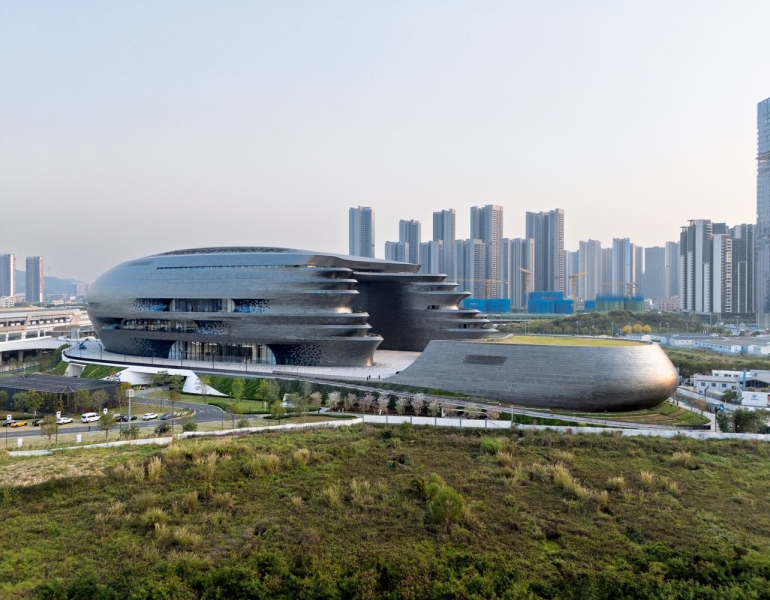In the heart of Shenzhen’s Guangming Science City, Zaha Hadid Architects (ZHA) has unveiled the Shenzhen Science & Technology Museum—a 125,000-square-meter landmark designed to embody the city’s rapid ascent as a global innovation hub. This isn’t just another museum; it’s a spatial narrative that intertwines urban dynamism with natural serenity, all while setting a new benchmark for sustainable civic architecture.
Sculpting the Urban Fabric
The museum’s U-shaped plan isn’t merely a design choice; it’s a deliberate response to the site’s unique conditions. To the east, the building presents a solid, curvilinear façade that mirrors the city’s bustling circulation routes. As the structure extends westward, it transforms—terraced layers unfold, seamlessly integrating with the natural landscapes of Guangming Park. This transition from urban solidity to organic fluidity isn’t just aesthetic; it’s functional, guiding visitors through a journey that connects the city’s pulse to nature’s calm.
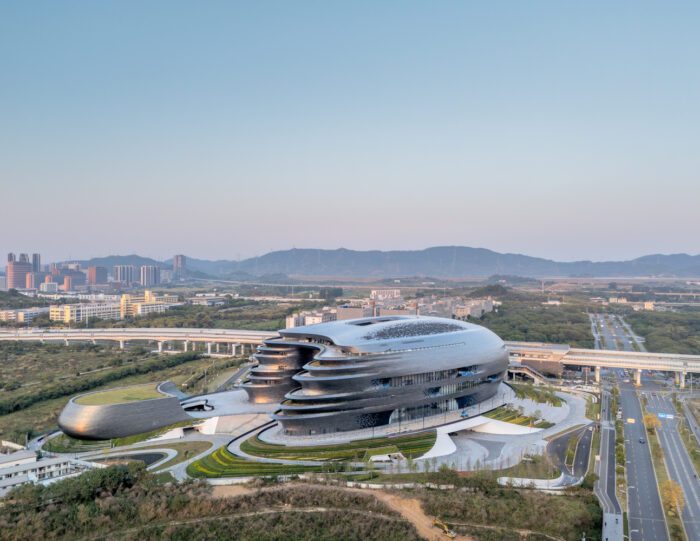
Adaptive Spaces for Evolving Narratives
Inside, the museum defies the static nature typical of traditional exhibition spaces. Galleries are designed with adaptability at their core. Some spaces offer permanence, anchoring the museum’s identity, while others are fluid, morphing to accommodate diverse exhibitions. This flexibility ensures that each visit offers a fresh perspective, aligning with the ever-evolving narratives of science and technology.
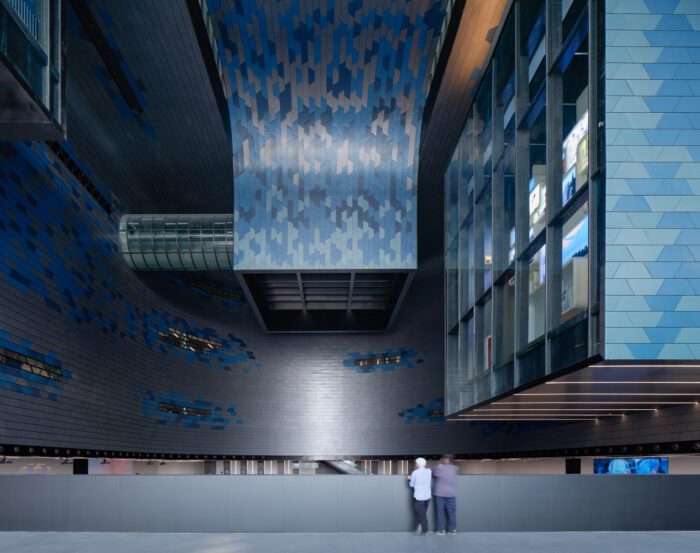
Sustainability as a Design Imperative
In a city known for its humid subtropical climate, the museum stands as a testament to sustainable design. ZHA employed extensive computer modeling and wind tunnel testing to optimize thermal performance, natural lighting, and air quality. The building’s envelope boasts high thermal insulation, energy-efficient glazing, and smart building management systems. These features collectively aim to achieve China’s highest Three-Star rating in the Green Building Evaluation Standard, setting a precedent for future civic projects.
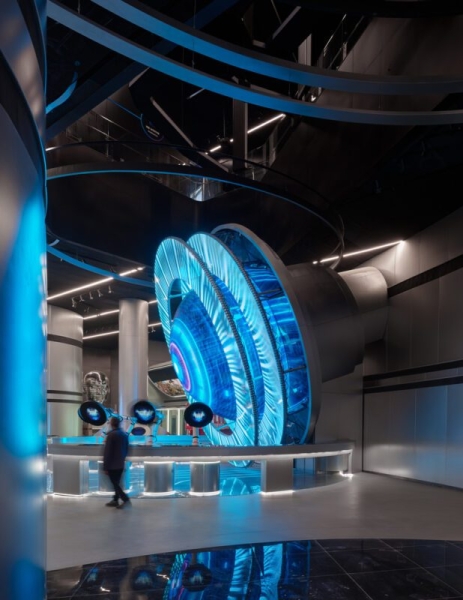
A Nexus for Innovation and Education
Beyond its architectural prowess, the museum serves as a nexus connecting universities, schools, and innovation centers across China. It’s not just a place to observe scientific advancements but a platform to inspire future innovations. By fostering collaboration and learning, the museum reinforces Shenzhen’s position as a leading center of technology and innovation.
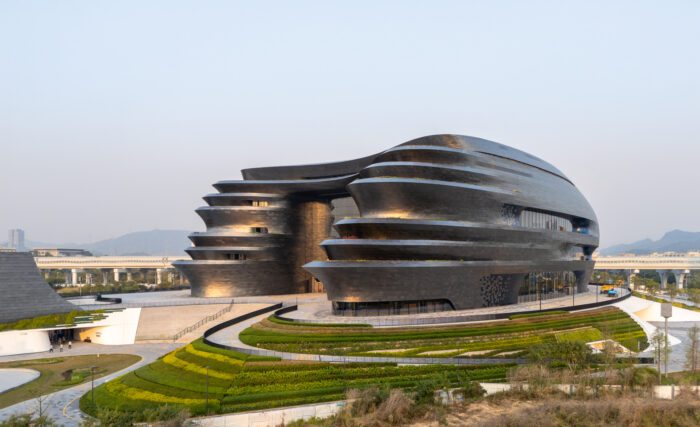
The Shenzhen Science & Technology Museum is more than a building; it’s a manifestation of a city’s ambition, a fusion of design and purpose. ZHA’s creation doesn’t just house exhibits—it tells a story of progress, adaptability, and harmony with nature. For architects and designers, it’s a compelling case study in how thoughtful design can encapsulate a city’s spirit and aspirations.

